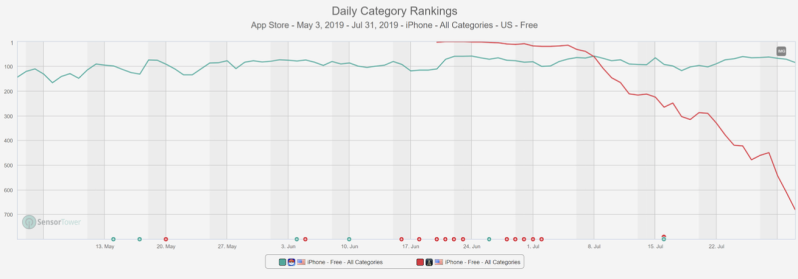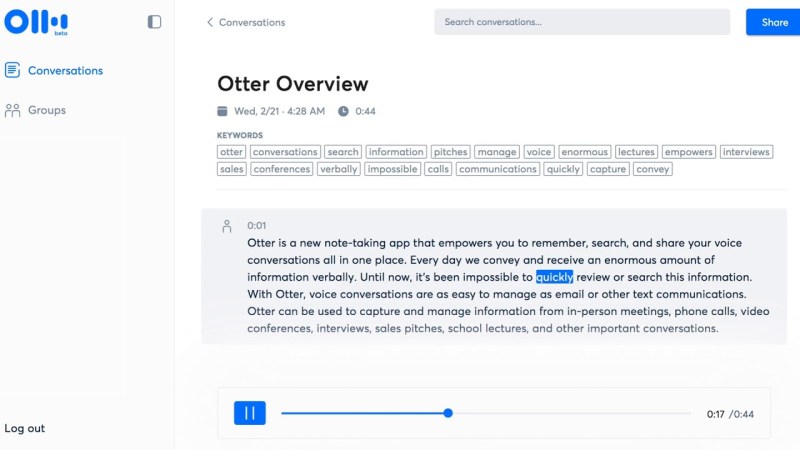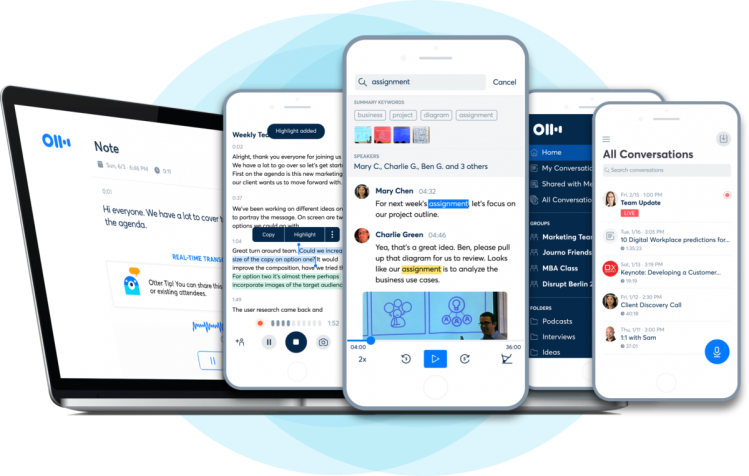Watch all the Transform 2020 sessions on-demand here.
There’s no shortage of competition in the audio transcription market, which is estimated to be worth $31.82 billion by 2025. But Otter.ai (formerly AISense) — the startup behind speech-to-text service Otter — has managed to carve out a niche for itself in the four years since its founding. Today the company confirmed to VentureBeat that it has raised $10 million in a round led by strategic backer NTT Docomo’s Docomo Ventures, with participation from Fusion Fund, GGV, Dragon Fund, Duke University Innovation Fund, Harris Barton Asset Management, Slow Ventures, and others. This brings Otter.ai’s total venture capital raised to $23 million, following previous rounds totaling $13 million.
As part of Docomo’s investment, the Tokyo-based mobile phone operator says it’s piloting Otter in Berlitz’s English language classes in Japan. According to Otter.ai founder and CEO Sam Liang, students are using Otter to transcribe and review the content of lessons, click on sections of text, and start voice playback.
“Otter is pleased to partner with market leader Docomo to bring innovative business collaboration offerings to Japan that transcend language and transform the way people work,” said Liang in a statement. “Docomo’s support and commitment have enabled Otter to quickly address business needs in Japan for a highly accurate meeting note-taking collaboration app.”

Above: Top growth (Pokémon GO vs. Harry Potter Wizards Unite)

June 5th: The AI Audit in NYC
Join us next week in NYC to engage with top executive leaders, delving into strategies for auditing AI models to ensure fairness, optimal performance, and ethical compliance across diverse organizations. Secure your attendance for this exclusive invite-only event.
The capital infusion comes nearly a year after Otter.ai brought Otter to the education market with Otter for Education, which lets school instructors control access to recorded transcripts and complements student disability services and accessibility technologies. More recently, Otter.ai launched Otter for Teams, a subscription solution designed to accommodate the needs of small and medium-sized businesses with account management, provisioning, reporting, and other features, as well as single sign-on support and collaborative tools that let users highlight bits of conversations.
Otter’s core technology, which was developed by a team hailing from Google, Yahoo, Facebook, MIT, Stanford, Duke, and Cambridge, is optimized for conversations. It can distinguish among speakers using a technique called diarization, generating a unique print for each person’s voice. Transcriptions are processed in the cloud and made available from the web, in Dropbox, or in Otter’s mobile app for iOS and Android devices, where they can be searched, copied and pasted, scrolled through, edited, and shared. A word cloud at the top of each recording tracks the most-used terms.
Otter competes with Microsoft 365, which can host live events with AI-powered features such as facial recognition of attendees and autonomous speech-to-text conversion, as well as comparable meeting transcription tools from Cisco and startups Voicera, Verbit, Trint, Simon Says, and Scribie.
But Otter seeks to differentiate its service with competitive pricing. Otter for Teams starts at $12.50 per month, making it only slightly pricier than the company’s premium and student tiers, which cost $10 per month and $5 per month, respectively. (Otter.ai offers a free plan with 600 minutes of transcription per month and unlimited cloud storage.) Otter’s also licensing its tech to third parties, like video conferencing company Zoom, which lets its users automatically upload conversations to Otter.
The growing list of organizations that have piloted or are actively using Otter includes Vice’s Virtue Worldwide creative agency, auditing firm Moss Adams, design and production agency BRC Imagination Arts, property tech firm Amne, Bridgewater Associates, Tulane University, Western Kentucky University, the University of California Los Angeles, and Harvard University.


